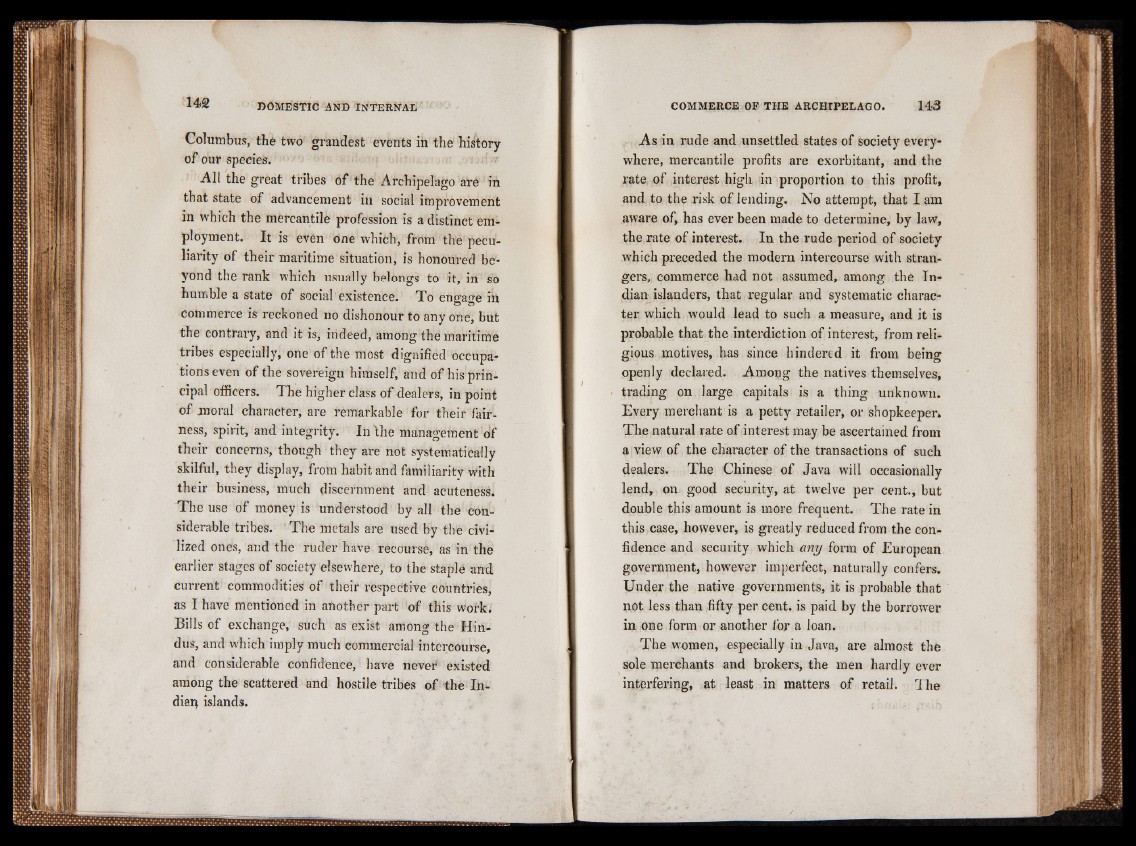
Columbus, the two grandest events in the history
of our species.
All the great tribes of the Archipelago are in
that state of advancement in social improvement
in which the mercantile profession is a distinct employment.
It is even one which, from the peculiarity
of their maritime situation, is honoured beyond
the rank which usually belongs to it, in so
humble a state of social existence. To enfOfa sc5re in commerce is reckoned no dishonour to any one, but
the contrary, and it is, indeed, among the maritime
tribes especially, one of the most dignified occupations
even of the sovereign himself, and of his principal
officers. The higher class of dealers, in point
of moral character, are remarkable for their fairness,
spirit, and integrity. In the management of
their concerns, though they are not systematically
skilful, they display, from habit and familiarity with
their business, much discernment and acuteness.
The use of money is understood by all the considerable
tribes. The metals are used by the civilized
ones, and the ruder have recourse, as in the
earlier stages of society elsewhere, to the staple and
current commodities of their respective countries,
as I have mentioned in another part of this work;
Bills of exchange, such as exist among the Hindus,
and which imply much commercial intercourse,
and considerable confidence, have never existed
among the scattered and hostile tribes of the Indian
islands.
As in rude and unsettled states of society everywhere,
mercantile profits are exorbitant, and the
rate of interest high in proportion to this profit,
and to the risk of lending. No attempt, that I am
aware of, has ever been made to determine, by law,
the rate of interest. In the rude period of society
which preceded the modern intercourse with strangers,
commerce had not assumed, among the Indian
islanders, that regular and systematic character
which would lead to such a measure, and it is
probable that the interdiction of interest, from religious
motives, has since hindered it from being
openly declared. Among the natives themselves,
trading on large capitals is a thing unknown.
Every merchant is a petty retailer, or shopkeeper.
The natural rate of interest may be ascertained from
a view of the character of the transactions of such
dealers. The Chinese of Java will occasionally
lend, on good security, at twelve per cent., but
double this amount is more frequent. The rate in
this case, however, is greatly reduced from the confidence
and security which any form of European
government, however imperfect, naturally confers.
Under the native governments, it is probable that
not less than fifty per cent, is paid by the borrower
in one form or another for a loan.
The women, especially in Java, are almost the
sole merchants and brokers, the men hardly ever
interfering, at least in matters of retail. The
/